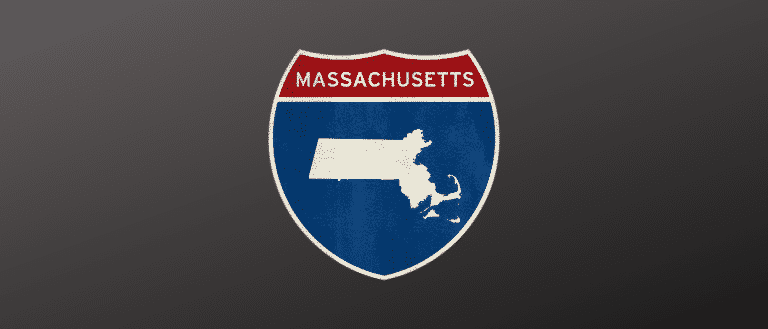Indiana May Use Geofencing to Prevent Wagers Placed at Games

A provision buried in the draft regulations issued by the Indiana Gaming Commission may lead to betting apps using geofencing technology to block wagering at stadiums.
Indiana joined the growing list of states that have legalized sports betting in May. Sports betting has yet to launch in Indiana, but the stated goal is to launch retail sportsbooks on September 1st with mobile betting scheduled sometime later.
The delayed launch of mobile betting is about par for the course, with regulators seemingly more comfortable monitoring the launch of retail sportsbooks before moving on to the more complicated issue of mobile betting. New Jersey and Pennsylvania, for example, both authorized retail sportsbooks before eventually giving the green light to mobile betting apps.
Plus, the Indiana Gaming Commission (IGC) will be doing no small amount of testing before giving any online sportsbooks the go-ahead. Not only will the IGC need to ensure geofencing is able to effectively keep out-of-state customers from gaining access to Indiana betting apps, but it may also need to test each app’s ability to enact geofencing at the much smaller scale of individual stadiums.
After mobile betting launches in Indiana, there is a decent chance fans will find themselves unable to place wagers while actually attending sporting events in person. Draft regulations issued by the IGC earlier in July specify that sports leagues may request the IGC to order all licensed betting sites to block mobile wagers placed at sports stadiums using geofencing technology.
What is Geofencing and Why is Indiana Considering Blocking Wagers at Games?
An issue lawmakers have been faced with when trying to get legislation passed has been a desire to protect the integrity of the game. Shortly after the Supreme Court handed the power to legalize sports betting back to the states, some sports leagues began heavily lobbying lawmakers to include “integrity fees” in any proposed legislation.
According to the leagues, so-called integrity fees were critical to protecting the integrity of sports in the USA. These funds would be used to fund any additional oversight the league would have to employ in a world where sports betting is now legal.
Few lawmakers bought into the notion, however, and it was widely viewed as an underhanded, dishonest tactic to cash in on the changing legal landscape by forcing operators to hand over obscene amounts of money to the leagues.
Although integrity fees never made it off the ground, lawmakers and league officials do still have concerns regarding the integrity of sports events. This is particularly true of college events, with the logic being unpaid college athletes are more susceptible to temptation than millionaire pro sports athletes.
Legislation in multiple states includes prohibitions on wagers involving local college teams and/or events involving local teams even if those events are held out of state. The Indiana sports betting law does not include restrictions on college betting, but we can see from the recently-issued draft regulations that regulators still have integrity on their minds.
Rather than ban betting on local teams, the IGC is poised to take a different route: allow sports leagues to request betting “dead zones” be imposed around events when there are serious integrity concerns.
If they materialize, such dead zones will be imposed through the use of geofencing technology. This is the same technology used in NJ, PA and elsewhere to ensure all mobile betting customers are physically present within state lines before accepting their wagers.
Could geofenced games become a common occurrence?
Just because the IGC is willing to hear sports leagues’ requests for betting dead zones does not mean those requests will be made or granted often. Chapter 11, Section 2 in the draft regulations (pg. 20) makes it clear the IGC will need good reasons to grant geofencing requests.
Here’s Section 2 in its entirety:
Consideration to geofence the location of a particular sporting event. (a) The executive director will consider a request by a sports governing body to utilize a geofence to prohibit wagers at the location of a particular sporting event provided the request includes:
- Information indicating a specific and credible threat to the integrity of sports wagering at the particular location of the sporting event which is beyond the control of the sports governing body to preemptively remedy or mitigate;
- Confirmation from a geofence service provider licensed by the commission establishing that utilization of a geofence to prohibit wagers at the location of the particular sporting event has been executed; and
- (3) An evaluation that no other means exist to remedy or mitigate the specific risk to sports wagering at the location of the particular sporting event and that geofencing is the only appropriate measure to address the issue.
(b)In considering the request, the commission may consul with an independent monitoring provider and other jurisdictions.
Of course, what is considered a “credible threat” and a “risk” is open to interpretation. However, notice the IGC may also consult an “independent monitoring provider” and other jurisdictions for guidance on specific requests.
Is this a good idea?
Concerned citizens that do not think to give the IGC or any sports governing body this kind of power can submit comments to the IGC by August 1. At that point, the regulations will be finalized and adopted.
There are definitely pros and cons to giving the IGC the power to shut down gambling at certain sporting events. Protecting the integrity of sporting events is essential. If cutting off the ability to make bets online can do so, then by all means—make it happen.
It is certainly better than paying a fee to the NFL or just outright banning wagers on local colleges. However, will it really be much of a deterrent? Someone determined to corrupt college athletes hardly need to be present in the stadium during the game.
One of the conditions for granting a request is that it be a last resort. The league making any such geofencing request will have had to do everything possible to neutralize the threat. If they can’t and feel the need to make this request to the IGC, does that mean the result of the game is going to be tainted?
It almost feels like something is missing from the proposed reg that will give it the bite it needs to be an actual deterrent to foul play.
Tania brings over 10 years of experience as a gambling industry reporter to BettingUSA.com, providing frequent news coverage and coverage of current events.






